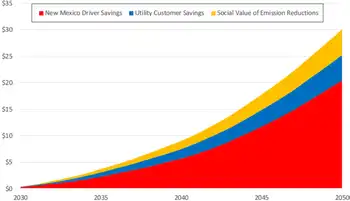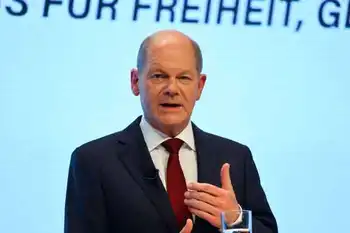A push for whole energy efficient neighborhoods
The "whole-neighborhood" approach to energy efficiency sounds simple enough, even mundane — from weather-stripping to improved insulation.
But in New England with its bitter winters and drafty, aging housing stock, that challenge can be more daunting than in balmier parts of the country. It can also produce more dramatic fuel savings.
The goal of the federal "Retrofit Ramp-Up" program is to demonstrate that economical energy upgrades can be created for a large portion of residential, commercial and public buildings in specific communities.
The state has teamed with the City of Boston to seek the $60 million grant from the U.S. Department of Energy to show that significantly upgrading energy efficiency in an older, urban neighborhood is possible.
The centerpiece of the proposal is a plan to give an energy facelift to Boston's historic Blue Hill Avenue corridor which runs through the city's Roxbury, Mattapan and Dorchester neighborhoods.
If approved, the state would use $15 million of the $60 million to retrofit the corridor.
Boston officials say Blue Hill Avenue is a good place to demonstrate the benefits of energy efficiency programs in a dense city environment.
More than 60 percent of residents in the neighborhood live in rental housing, spending upward of 10 percent of their income on energy costs. The city will use the federal dollars to help persuade landlords to upgrade the buildings, lowering energy costs for tenants.
Boston Mayor Thomas Menino said the investments will not only improve homes, but "transform lives by significantly lowering utility bills and will create good paying green jobs for local residents."
Officials estimate if the state is awarded the $60 million grant, it would result in total annual energy bill savings of up to $41 million by the third year of the project.
It could also create or save more than 4,700 "green economy" jobs statewide, including weatherization contractors, HVAC vendors and installers, energy assessors, and program support personnel.
The state is likely facing competition from other states. There's only $360 million available nationwide for the program and the Department of Energy is expected to announce 20 awards of between $5 and $75 million within the next 90 days.
State Environmental and Energy Secretary Ian Bowles said the proposal dovetails with other state initiatives designed to boost energy efficiency, while simultaneously pushing renewable energy sources like wind and solar.
One of those initiatives is the drive for "high performance" buildings — from hospitals to schools.
The state is offering $15 million in federal stimulus dollars for proposals for the super-energy efficient buildings. The state wants projects that can dramatically reduce energy consumption and substitute renewable energy sources for fossil fuels.
The ultimate goal is the "zero net" building which relies on everything from super-efficient insulation to solar panels, wind turbines and geothermal power to be energy neutral, producing as much energy as it consumes.
Under the Green Communities Act, the Commonwealth has also adopted a new, highly energy efficient state building code and launched a new Energy Efficiency and Building Science Skills Initiative at Springfield Technical Community College.
In the meantime, Bowles said the state will be happy with helping prevent Massachusetts' stock of older apartment buildings, single family homes and trademark wooden tripledeckers from wasting energy.
"By penetrating entire neighborhoods," Bowles said, the whole neighborhood approach "offers a unique opportunity to lower utility bills across communities, creating local jobs as well as more comfortable spaces for people to live and work."
Related News

Tunisia invests in major wind farm as part of longterm renewable energy plan
TUNIS - UPC Renewables (UPC) and the Climate Fund Managers (CFM) have partnered to develop a 30 megawatt wind farm in Sidi Mansour, Tunisia that will help the country meet its 30% renewable energy target by 2030.
Tunisia announced the launch of its solar energy plan in 2016, aiming to increase the role of renewables in its electricity generation mix ten-fold to 30%,
This Sidi Mansour Project will help Tunisia meet its goals, reducing its reliance on imported fossil fuels and demonstrating to the world that it is serious about further development of renewable energy investment.
“Chams Enfidha”, the first solar energy station…





